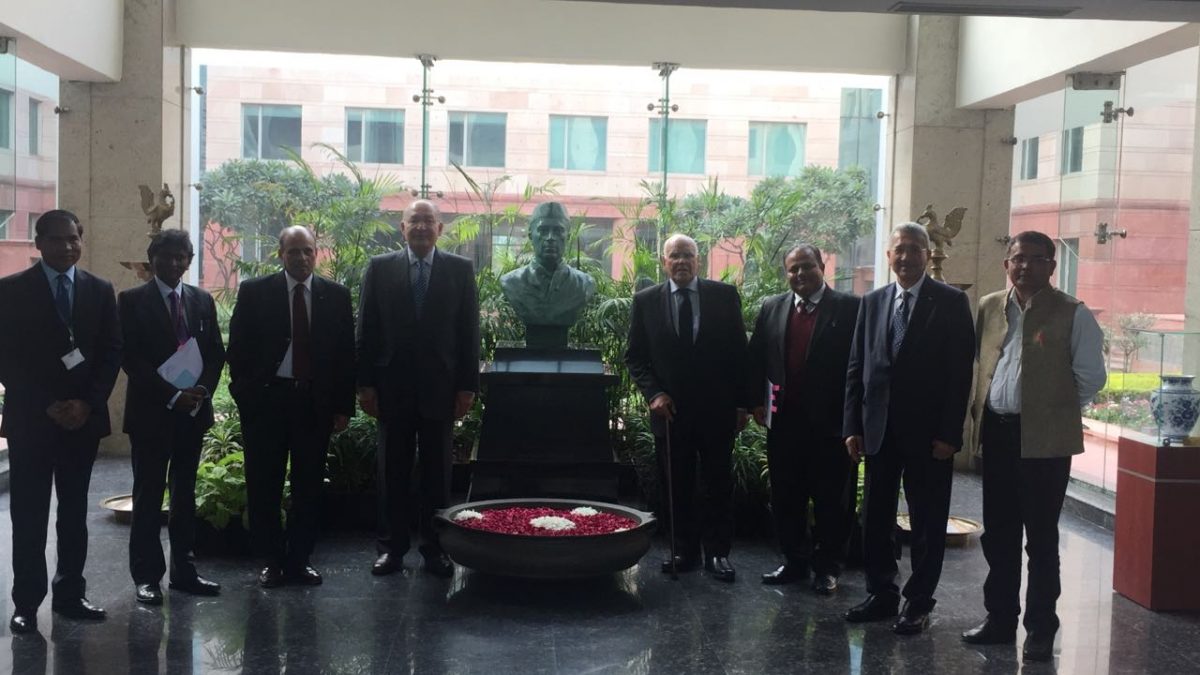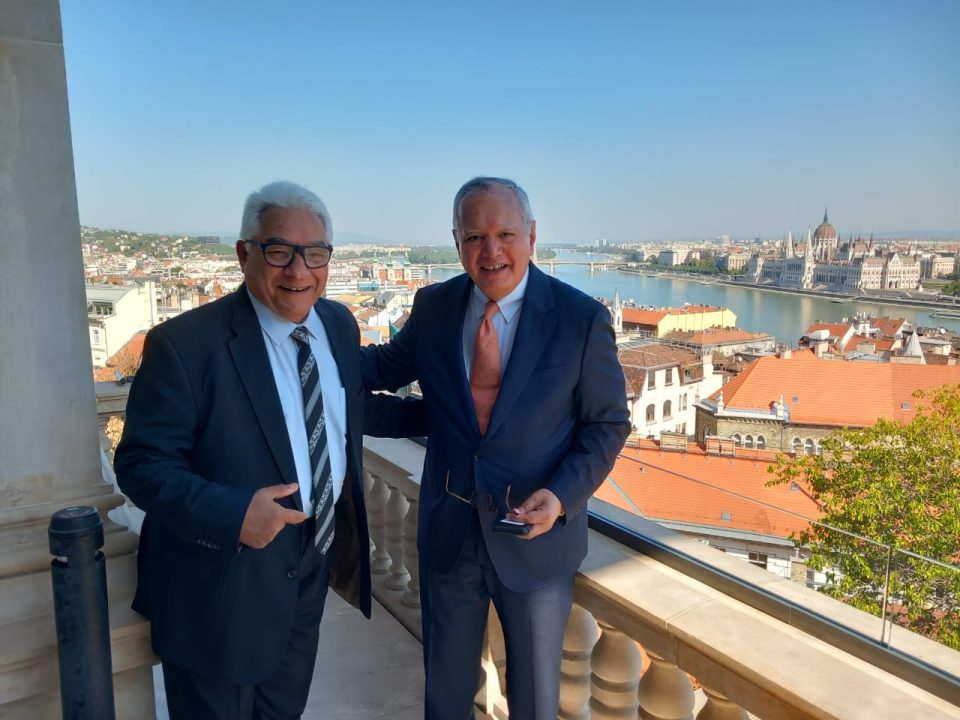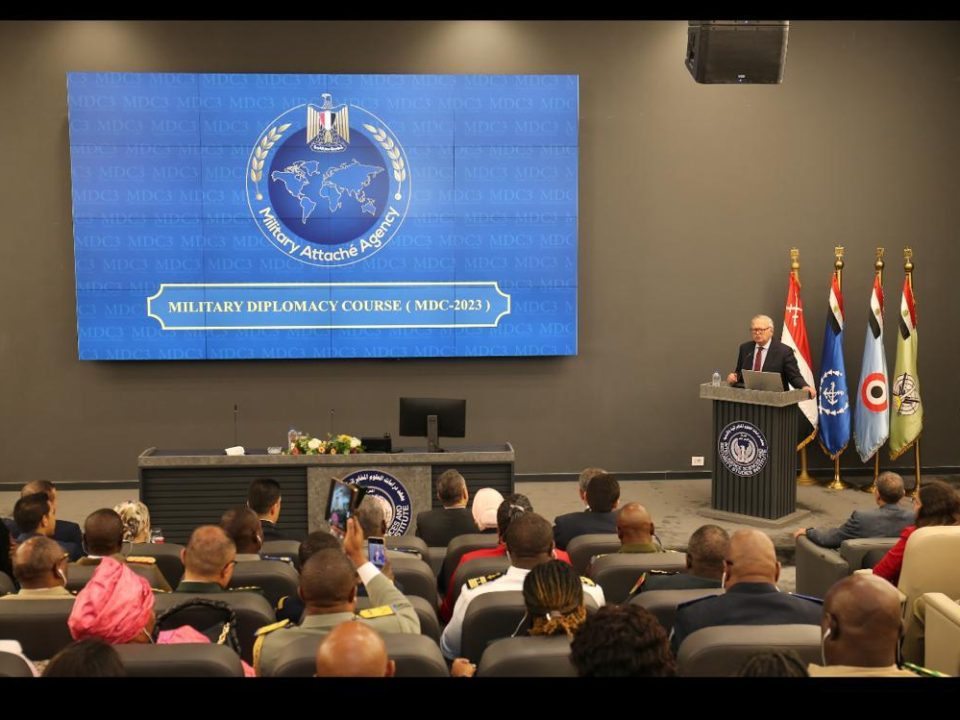ECFA Annual Conference on “Egyptian Foreign Policy and regional & international transformations in the Middle East”
December 22, 2016Round Table about “The New US Administration Policy in the Middle East and the Prospects of Egyptian-American Relations”
January 22, 2017
During the period 4-7 January 2017, a delegation from the Council visited the State of India, during which the third dialogue session was held with the Indian Council for International Affairs (ICWA), which is overseen by the Ministry of Foreign Affairs. The Egyptian delegation was lead by Ambassador Dr. Mounir Zahran, and the membership of the following ambassadors; Dr. Ezzat Saad, Director of the Council, Dr. Kheir El-Deen Abdullatif and Dr. Mohamed Hegazy, member of the Council. The Indian side was lead by Ambassador Shri Nalin Surie, Director of the Council, and other members including; Mr. Aganish Kumar, Deputy Director General of the Council, Ambassador Sheel Kant Sharma, Ambassador Sibal Kinwal, Dr. Nivedita Ray, Dr. Omair Anas, Dr. Zaker Hussein, Dr. Fazzur Rahman Siddiqui, Dr. Kwamar aswamy P.R, and Mr. Piyush Srivastava. Also present at the Egyptian Embassy in New Delhi were Counselor Nivine Al-Husseini and Secretary-General Omar Abuzaid. After the third dialogue session, an interview with Indian Assistant Secretary of State for Economic Relations Ambassador Sinhar Ama was arranged on the afternoon of 6th January 2017, due to the illness of the Secretary of State.
The visit took place in the wake of President Sissi’s successful visit to India last September which established three main pillars of relations between the two countries: political and security cooperation, economic and scientific cooperation, cultural cooperation and strengthening relations between the two countries and peoples. In this context, the seminar focused mainly on a number of key themes, which focused on ways to advance Egyptian-Indian relations and enhance the areas of partnership between them, especially in the economic field, in the context of Egypt’s implementation of the economic reform program and the need to consider signing a comprehensive strategic partnership agreement with India. Such as the similar agreement with China, in light of the commonalities and ways of benefiting from the Indian experience in the fields of renewable energy, small and medium enterprises and security cooperation in the field of combating terrorism. It has been confirmed on the need to coordinate between the Egyptian and Indian visions on the regional situation, the geopolitical landscape in West Asia and North Africa, especially under the new American administration, and the rise of new global and regional forces such as Russia, China, Iran, Turkey, Israel and other countries in the absence of an effective role of the Arab League. The two countries should play an active role in settling the region’s conflicts, foremost of which is the Palestinian issue to achieve security and stability in the region as a whole and coordination of efforts at the international level in the field of reform of the UN Security Council to ensure equitable representation of the developing world. Combating terrorism from a global perspective and pursuing the United Nations’ agenda for sustainable development 2030, has been discussed during the session.






